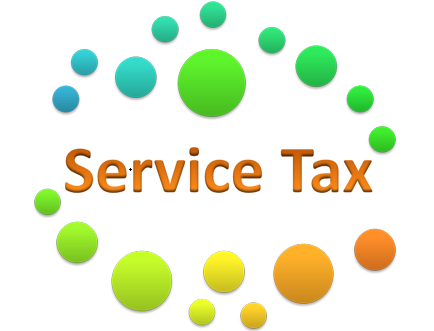Discounts and incentives are the common feature of the any business house. Since the beginning of trade and commerce in this world, the discount and incentives were the powerful tools to attract the buyers and to boost one’s sales. In any trading or service sector the seller offer discount to the buyer either on bulk purchases or on making cash payment or on achieving specified targets. These discounts are popularly known as Trade discount, Cash discount, Quantitative discount, Target incentives etc. etc. Some discounts are allowed on the face of the invoice and some are allowed by way of credit notes etc. So far as discount allowed on the face of the invoice either in the name of Trade discount or any other name is concerned, it is a settled position in accounting as well as in law that the purchase price gets reduced by the same. So, generally, there is no dispute arises in such cases. But when discounts are allowed subsequently by way of Credit notes etc. then there starts a dispute about the taxability of such discount. Different department interprets the matter in their own way. The Service Tax department starts demanding Service Tax, the Income Tax Department raises question of deduction of TDS u/s 194H and finally the State Govt. requires the buyer to reverse proportionate input tax credit claimed earlier on the full purchase value. So the main litigation point is the after sales discount & incentive. Recently, the author has seen some developments in this subject which tempted him to share the same with the readers.
TAXABILITY UNDER SERVICE TAX LAW:
Recently, the Mumbai CESTAT had an occasion to deal with one such issue in case of Group M Media India Pvt. Ltd and Others Vs. Commissioner of Central Excise/ Service Tax ThaneI/ MumbaiII and Others [2014 (11) TMI 545CESTAT MUMBAI] wherein the questions before the Tribunal was:
- Whether Service tax levy is sustainable in respect of discounts/incentives received by the Advertising agency from the print/ broadcast media in respect of advertisements placed by the said agencies on behalf of customers;
- Whether Service tax is leviable on amounts, which are outstanding and the Advertising agencies write back these amounts after a lapse of time as per the accounting procedure.
The appellant rendered the services of advertising agency and discharged service tax on the commission received by them from their advertiser client. The transaction involves three parties, the advertiser, the advertising agency and the media which puts out the advertisement. Print media has been exempted from service tax while the broadcasting media is not and they have discharged service tax under the broadcasting services on the consideration received. In certain cases, the media (broadcaster) gave a volume discount to the advertising agency based on the volume of business given by the advertising agency, at the end of the year which was shown as income in the books of accounts of the advertising agency.
The revenue was of the view that the volume discount received by the advertising agency is for the services rendered by the agency to the media, for promotion of the business of the latter, which falls under the category of “business auxiliary service” and the advertising agency is liable to pay service tax on this amount received.
The Hon’ble CESTAT held that Service Tax is not leviable on discounts received by advertising agency from media. A discount is reduction in price given to buyer of goods or services. A receiver of services cannot be considered as agent of service provider so as to be charged to Tax under Business Auxiliary Service. The issues involved have been examined at length and applying the ratio of the earlier case of M/s Grey World Wide India Pvt. Ltd. [2014-TIOL-1650-CESTAT-MUM] the Tribunal had come to the conclusion that service tax is not leviable on these amounts inasmuch as these are either incentives or accounting adjustments and not consideration for any services rendered.
Comment:
Though in the above case the period involved was pre-negative list era i.e. prior to 01.07.2012. However the author believes that the principle of law will be more or less same in the present era of negative list too. There is never an element of service in case of discount etc. offered in the normal course of trade. Further the said judgment was rendered in the context of advertising services but presently it is seen that department is demanding service tax even in case of a trading concern getting discount and incentives. We believe the above position will hold good in that situation also because discount earned from the manufacturer or the supplier cannot be considered as sales commission and buyer cannot be held as commission agent. As long as the relationship between buyer and seller is on principal to principal basis and the ownership of goods gets transferred to the buyer once the purchases is made and further the buyer is making sales tax payment at their own on sales of such goods there is no question of any commission earned from seller. Tata Motors Insurance Service Ltd. Vs. Commissioner of Service Tax, Bangalore reported at 2009 (9) STR 176 (Tri.-Bang.)
TAXABILITY UNDER INCOME TAX LAW:
Presently, under the Income Tax law there is section 194H which prescribes for deduction of tax at source in case of payment of ‘Commission’ or ‘Brokerage’. In some cases the department took the view that the after sales discounts or incentives offered by the seller to the buyer is nothing but ‘Commission’ income in the hands of the buyers .Hence it is attracting rigor of section 194H whereby the seller is required to deduct tax at source on such discounts or incentives. On the other hand, the assessee contended the matter on the ground that the relationship between the buyer and the seller is on the Principal to Principal basis and thus section 194H is not attracted.
Let us understand the matter with some judicial decisions:
1. Ahmedabad Stamp Vendors Association vs. Union of India (2002) 257 ITR 202 (Guj.) [See also Kerala State Stamp Vendors Association vs. Office of the Accountant General (2005) 150 Taxman 30 (Ker.)]
The definition of “commission or brokerage” in the Explanation (i) to section 194H is not so wide as to cover any payment receivable, directly or indirectly, for services in the course of buying or selling of goods. The element of agency is essential to attract Explanation (i) to section 194H. Hence discount given by the Government to licensed stamp vendors on sale of stamp paper to them, is not “commission” or “brokerage” u/s 194H.
2. National Panasonic India (P.) Ltd. vs. DCIT, TDS Circle-50(1) [2005] 3 SOT 16 (Delhi) / 94 TTJ 899
Commission payment, in order to attract the provisions of s. 194H, must have been received by a person who is acting on behalf of another, that is, in other words, he must be acting as an agent of another person. Thus, where it was found on facts that the arrangement between the assessee manufacturer and the distributors/dealers was on a principal to principal basis several incentives and discounts paid to distributors/dealers was held not liable to TDS u/s. 194H.
3. Asst. CIT vs. Bharti Cellular Ltd. (2007) 294 ITR (AT) 283 (Kol.)
The assessee company sold SIM and Prepaid cards to its distributors/ franchisees at a fixed rate below market price for onward sale to its ultimate customers. The difference was held as commission and not discounts as contended by the assessee and liable to TDS u/s. 194H since:
(i) all rights, title, ownership and property rights in such cards would always rest with the assessee; and
(ii) the agreement between the assessee and the franchisee revealed that they were commission agents acting on their behalf for margins.
Comment:
Recently, the similar issue arose before the Hon’ble Karnataka High Court in case of Bharti Airtel Ltd. v. DY.CIT (2014) 52 taxmann.com 31 (Karnataka) wherein the question was-
Whether discount given (by Telecom Companies) to distributors on sale of SIM cards and recharge coupons was liable for deduction of tax at source under Section 194H?
The High Court held in favour of assessee as under:
- Sale of SIM card involves sale of right to services. Therefore, the relationship between the assessee and the distributors would be that of principal and principal and not that of principal and agent.
- Where SIM cards or recharge coupons were sold at discounted price to distributors, there was no payment of commission or brokerage to them.
- Hence, TDS under section 194H was not applicable on sale of SIM cards and prepaid recharge coupons at discounted MRP by Telecom Company to distributors.
TAXABILITY UNDER ASSAM VAT LAW:
The position under the Assam VAT law prior to 19.09.2014 was that the sellers were reversing output tax on the after sales discounts /incentives etc. in the credit notes raised and thereby paying VAT tax on the actual /net sales consideration finally receivable. On the other hand the buyers were also required to reverse input claimed proportionately. However w.e.f.19.09.2014 the State Govt. vide Gazette notification no:LGL.6/2003/93 dated: 19.09.2014 has changed this position by suitably amending /inserting some of the new provisions in the Act. As a result thereof the present position is that if any cash discount, trade discount or commission is allowed at the time of sales of goods and shown on the face of the original invoice then it will not form part of sales price u/s 2(44) and the seller will charge VAT only on the net sales price. It means if after sales discount or incentive is allowed that will now not reduce the previously agreed sales price as mentioned in the original invoice.
Further in Section 10(Levy of Tax on Sales) a new sub-section (4) was inserted whereby a bar is put on the reversal of Output tax in case of subsequent issue of credit notes on account of discount or incentive. As a result thereof the tax component fixed/charged in the original invoice is not going to alter now even on subsequent issue of credit notes on account of discounts or incentives. In the similar line a new sub-section (3) was inserted to the section 13 ( Adjustment in Output Tax) debarring the selling dealer to reduce the output VAT on account of after sales discounts/incentives etc.
Thus under the amended provisions of Assam VAT it is now clear that Govt. is not allowing to alter the sales price once fixed at the time of original sales. Whatever discounts /incentives etc. is proposed to be allowed should have been shown in the invoice itself and any further discount etc. by way of credit note or otherwise is not going to reduce the output VAT liability of the seller.
Comments:
Under the earlier law of Assam VAT (i.e prior to 19.09.2014) the selling dealer was reversing output VAT and the purchasing dealer was also required to reverse the input VAT accordingly. But in the light of the amended law it seems that none of them is required to reduce their output or input VAT as the case may be. However it is interesting to note that there is no consequential amendments has been made to section 11 (Taxable Turnover ) & rule 9 ( Deduction from taxable turnover).
Disclaimer:
The taxability of discount and incentive as discussed above should not be considered as final view of the author. There may be some other views also on this matter. But the readers are requested to judge the facts and circumstances of each case individually then apply the above views/cases to a particular situation as applicable.
*The author is a practicing chartered accountant at Guwahati and can be reached at: manoj_nahata2003@yahoo.co.in



